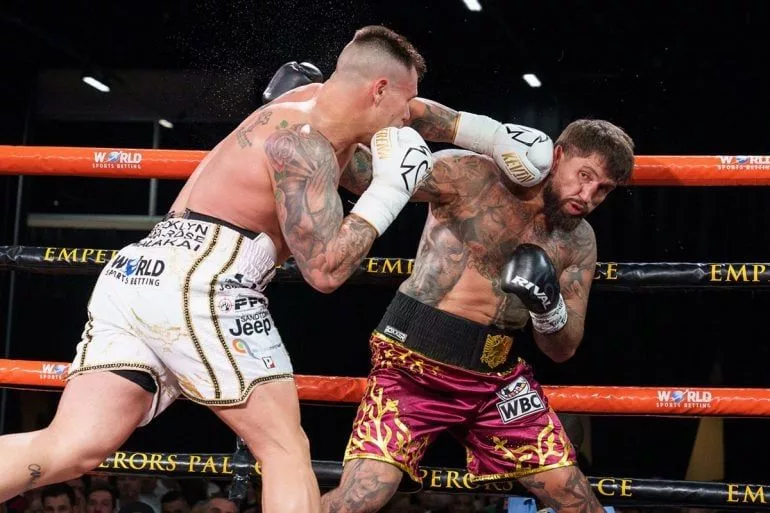South Africa’s 16 Days of Activism campaign is fighting against Gender-Based Violence and Femicide through a three-fold strategy of awareness, advocacy, and prevention. The campaign is not only symbolic but also a reflection of the country’s ambition to ensure safer communities for women and girls. The government has taken a comprehensive approach, including legislative reforms, the formation of the National Council on Gender-Based Violence and Femicide, educational initiatives, and initiatives focusing on women’s economic empowerment. GBVF is a systemic problem rooted in gender inequality that often occurs in the home, perpetrated by known individuals.
Championing the Fight Against Gender-Based Violence in South Africa
South Africa’s 16 Days of Activism campaign focuses on eradicating Gender-Based Violence and Femicide. The three-fold strategy of augmenting awareness, advocating, and spearheading prevention endeavors through social behavioural change initiatives is geared towards exposing the destructive effects of GBVF. The government’s comprehensive approach towards addressing GBVF includes legislative reforms, the formation of the National Council on Gender-Based Violence and Femicide, educational initiatives, and initiatives focusing on women’s economic empowerment.
Dramatic Kickoff of 16 Days Activism Campaign
Within the confines of Nsikazi Stadium Ehlanzeni, Mpumalanga, a stirring and resolute occasion came to life. The commencement of the 16 Days of Activism with a focus on No Violence against Women and Children, under the leadership of Deputy President Shipokosa Paulus Mashatile, signified a crucial advancement towards a harmonious society. The environment buzzed with unyielding resolve and unwavering dedication, validating the relentless efforts of the Department of Women, Youth and People with Disabilities – the vanguards of gender equality who organized this pioneering event.
International Campaign’s Resonance and Relevance
This worldwide movement that traces its roots back three decades has been tenaciously undertaken by South Africa for 25 years. The spotlight on Violence Against Women and Children (VAWC) has been unchanging, mirroring a societal pledge to eradicate the plague of Gender-Based Violence and Femicide (GBVF). The campaign’s persistence is not just symbolic; it stands as a concrete reflection of the country’s ambition to ensure safer communities for all, particularly women and girls.
The 2023 Campaign, themed “Accelerating actions to end Gender-Based Violence and Femicide: leaving no one behind”, portrays GBVF as a rampant infringement of human rights. Adopting a three-fold strategy of augmenting awareness, advocating, and spearheading prevention endeavors through social behavioural change initiatives, the campaign is geared to expose the destructive effects of GBVF. This aligns with the vision of a society where women and children can navigate the streets without fear.
Understanding Socio-Economic Factors
An interesting facet of the campaign is its analysis of socio-economic issues, such as unhindered access to clean water. The Department of Water and Sanitation highlights the link between water accessibility and violence against women and children. The disturbing yet persuasive argument is that women’s socio-economic standing puts them at risk of sexual exploitation when powerful individuals demand sexual favours for water. This exploitative scenario underscores the importance of safe water access as a fundamental human right, especially for women who predominantly manage household and domestic chores.
Deputy President Mashatile underscores the wider socio-economic implications of GBVF necessitating immediate action. He stresses the urgency for investment in water management and services as a prime strategy for poverty alleviation, sustainable economic growth, and lowering GBVF vulnerability. His appeal to the Department of Water and Sanitation to persist in making clean water accessible in rural areas further fortifies his dedication to guaranteeing basic human rights.
A Systemic Problem Rooted in Inequality
However, solving GBVF extends beyond addressing socio-economic imbalances. The issue is systemic and deeply entrenched in patriarchal norms and gender inequality. It is a universal phenomenon prevalent in all societies, cultures, and communities, irrespective of class, race, or socio-economic standing. The Takuwani Riime Programme of Action for 2023 – 2025, initiated on International Men’s Day, unpacks this complexity. The programme urges men to confront gender-related issues and actively engage in fighting GBVF.
The grim reality of GBVF is made evident in the alarming statistics: in the 2022/2023 fiscal year, close to 53,900 South Africans reported being victims of sexual crime. GBVF’s insidious nature is underscored by the fact that it often occurs in the home, perpetrated by known individuals. The tragic deaths of 293 innocent children and the numerous cases of attempted murder and assault bear witness to the horrifying extent of GBVF.
Government’s Multi-Faceted Response
The government’s dedication to tackling GBVF is manifested in diverse legislative, policy, and other measures. Six pieces of legislation related to Gender-Based Violence and Femicide have recently been enacted. President Cyril Ramaphosa’s approval of key legislative reforms, including the Criminal Law (Sexual Offences and Related Matters) Amendment Act Amendment Bill, the Criminal and Related Matters Amendment Bill, and the Domestic Violence Amendment Bill, further solidifies the government’s commitment.
The formation of the National Council on Gender-Based Violence and Femicide, Rapid Response Teams (RRTs), and various support structures, along with educational initiatives like the National School of Government’s online course on gender mainstreaming, exemplify a comprehensive approach towards addressing GBVF. The expansion of Thuthuzela Care Centres and initiatives focusing on women’s economic empowerment further showcase the relentless efforts.
The recent identification and conviction of 27 sexual predators in the country, including the sentencing of Mario Giusti to 6,400 years in prison, underscores the significant progress in combatting GBVF. However, the battle is far from won. Deputy President Mashatile urges men to set positive examples and encourages traditional leaders to intensify their stance against unfair inheritance practices and GBVF.
In conclusion, this year’s campaign amplifies the societal commitment to accelerate actions to end Gender-Based Violence and Femicide. It serves as a testament to the resilience, dedication, and optimism of a nation striving to create a safer and more equal society.
1. What is the focus of South Africa’s 16 Days of Activism campaign?
The focus of South Africa’s 16 Days of Activism campaign is to fight against Gender-Based Violence and Femicide through a three-fold strategy of awareness, advocacy, and prevention, with the aim of ensuring safer communities for women and girls.
2. What is the International Campaign’s theme for 2023?
The International Campaign’s theme for 2023 is “Accelerating actions to end Gender-Based Violence and Femicide: leaving no one behind”, which portrays GBVF as a rampant infringement of human rights and adopts a three-fold strategy of augmenting awareness, advocating, and spearheading prevention endeavors through social behavioral change initiatives.
3. What is the Department of Water and Sanitation’s role in the campaign?
The Department of Water and Sanitation highlights the link between water accessibility and violence against women and children, arguing that women’s socio-economic standing puts them at risk of sexual exploitation when powerful individuals demand sexual favors for water. This underscores the importance of safe water access as a fundamental human right, especially for women who predominantly manage household and domestic chores.
4. What is the root cause of GBVF?
GBVF is a systemic problem rooted in patriarchal norms and gender inequality and is prevalent in all societies, cultures, and communities, irrespective of class, race, or socio-economic standing.
5. What is the government’s response to GBVF?
The government’s response to GBVF is multi-faceted and includes legislative reforms, the formation of the National Council on Gender-Based Violence and Femicide, educational initiatives, and initiatives focusing on women’s economic empowerment. Six pieces of legislation related to Gender-Based Violence and Femicide have recently been enacted, and President Cyril Ramaphosa has approved key legislative reforms. Additionally, the government has formed Rapid Response Teams and various support structures, along with expanding Thuthuzela Care Centres.
6. What recent progress has been made in combatting GBVF?
Recent progress in combatting GBVF includes the identification and conviction of 27 sexual predators in the country, including the sentencing of Mario Giusti to 6,400 years in prison. However, the battle is far from won, and Deputy President Mashatile urges men to set positive examples and encourage traditional leaders to intensify their stance against unfair inheritance practices and GBVF.












